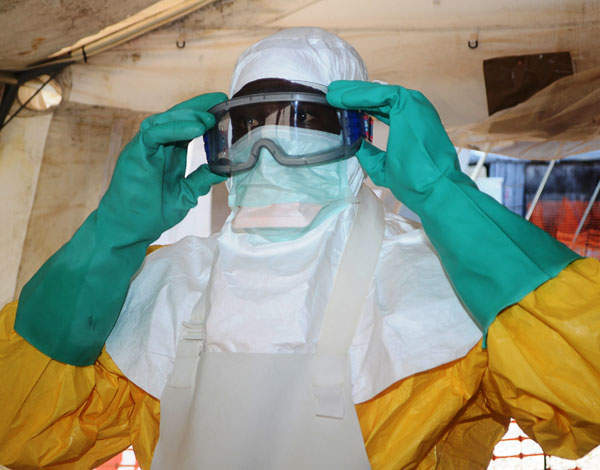

The Ebola outbreak in West Africa is the deadliest ever. More than 3,400 people have died since March and the disease continues to spread unabated. The World Health Organisation admits that figures underestimate the number of cases, warning there could be as many as 20,000 across the continent by November if efforts to tackle the virus are not intensified.
Governments all over the world are providing crisis aid, but critical problems persist — there is a lack of protective clothing for health personnel, of capacity to treat people, and even of ways to safely dispose of bodies. Private funders, such as the Gates Foundation, are starting to respond to this — but how can they make sure their money is spent effectively?
Funders need to consider two aspects of grant-making in emergencies to ensure their donations have the biggest impact possible.
First, they need to be able to spend a lot of money very quickly. With rapidly spreading diseases or emergencies, time is money and expert organisations on the ground, such as Medecins Sans Frontieres, need cash to buy supplies and pay local staff. A week’s delay in paying out funds can mean the disease crosses a border, making it even harder and more expensive to prevent its spread.
We have seen this before: the funds pledged by international donors to Haiti’s reconstruction after the earthquake in 2010 took months and even years to arrive, and in the meantime cholera and other diseases broke out in large victim camps.
Funders might explore having an ’emergency fast track’ that will allow them to forego their normal grant procedure and sign off grants within a week. Banks will need to play a part too — funders must demand an agile response to putting through large international payments more swiftly.
Secondly, there is the need to think ahead. In a recent blog, Owen Barder highlighted how there is no business case for developing a cure or a vaccine for Ebola: simply too few people are affected to make it worth the estimated cost of $1 billion. But even if the current outbreak of Ebola is stopped, chances are it will recur again. And in the future we are likely to see other diseases hit the poorest in the world with similarly devastating force.
Naturally, developing a vaccine would be the most cost-effective way for funders to spend their money. They would be filling a funding gap (as well as correcting a market failure), and saving thousands of lives and billions of dollars necessary for treating the disease when already in outbreak.
Some funders may find that their role is in the immediate response, others might want to think more long-term and donate strategically to eradicate the disease. No matter what, private funders can make an enormous difference in emergencies — if they do it right.
Cecilie Hestbaek is a researcher at NPC






